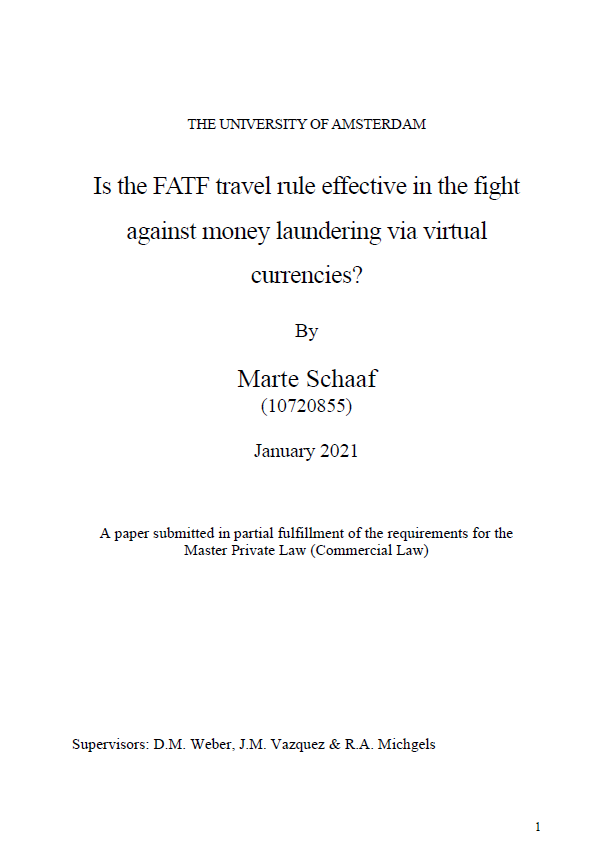
Is the FATF travel rule effective in the fight against money laundering via virtual currencies
By: Marte Schaaf
Published: 2021-01-01
Organization: Univeristy of Amsterdam
Tags: aml, kyc, governance, anti, money, laundering
Overview: This thesis seeks to answer the question whether the FATF travel rule is an effective means to combat money laundering via virtual currencies. The travel rule, also known as ‘recommendation 16’, requires virtual asset service providers (VASPs) to collect and exchange information about their customers. For the purpose of preventing and detecting money laundering the travel rule aims to increase the amount of information available about users transferring virtual currencies.
This thesis comprises of multidisciplinary, descriptive research and statements that are both predictive and normative. To gain a deeper understanding of the properties of virtual currencies, this thesis includes a multidisciplinary section exploring Bitcoin as a peer-to-peer payment system and ‘bitcoin’ as a currency for transmitting value. Subsequently, this thesis analyses the risks of money laundering associated with virtual currencies and the current legal framework addressing those risks. This thesis will be concluded by predictive and normative statements about the effectiveness of the FATF travel rule.
